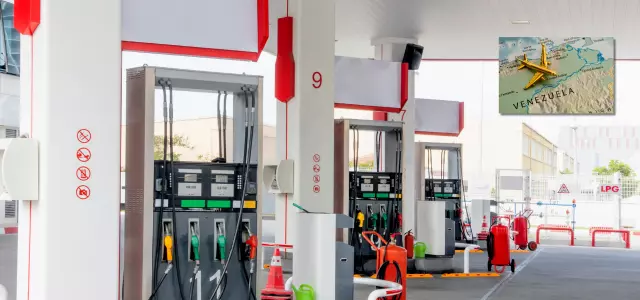
This article originally ran on Forbes.com on April 18, 2024. All rights reserved.
Daniel B. Markind is a Forbes.com energy column contributor. The views expressed in this article are not to be associated with the views of Flaster Greenberg PC.
Ever since strongman Hugo Chavez assumed power in Venezuela in 1999 and began moving the country toward an authoritarian, socialist model, the collapse of the economy has been offset by income generated from the presence of huge oil reserves in the country, and the billions of dollars contributed by the refiner Citgo, a subsidiary of the Venezuelan state oil holding company, PDV Holding, and indeed the only appreciable asset of that entity. In fact, Venezuela happens to control the largest proven oil reserves in the world, and Houston based Citgo, one of the ten largest American oil refiners, owns three US refineries and many oil storage terminals and pipelines, in addition to controlling a substantial retail distribution network in this country (Source). Now, however, Citgo’s financial condition has grown so weak that Venezuela may lose control over that company, with impacts nationally, if not internationally, that can only be imagined at this time.
Citgo’s problems unquestionably go back to severe financial mismanagement under the leftist economics of, first Chavez, and then his successor, Nicolas Maduro. After decades of such mismanagement, including the near constant invasion of Citgo’s revenue and overall assets to help fund Chavez and Maduro’s socialist agendas, Venezuela's reserves of hard currency had finally dropped from $30 billion just six years ago to only $10.7 billion last year. Riding the same downward slope, PDV Holding became so strapped for cash itself that it sought and received $1.5 billion in loans from Rosneft, an oil company whose majority stake is owned by the Russian government. When PDV ran through even that money and had no ability to repay its loans, Rosneft claimed that it had the right to take control of a 49.9% stake in Citgo (Source).
This, of course, was untenable for the Biden Administration, which held the power to block Russian control of PDV Holding, a Delaware corporation, under either national security grounds or sanctions first put in place by the Obama Administration.
Stymied by these controls, and evidently based on both PDV Holding and Citgo’s status as Delaware corporations, on November 30, 2023, Rosneft filed a lien with the Delaware Department of State, claiming that Rosneft would claim the 49.9% stake in Citgo due to Venezuelan defaults. That lien, in turn, set in motion the Delaware courts, which eventually provided an extraordinary ruling in a case called Crystallex International Corporation v. Bolivarian Republic of Venezuela that Citgo’s parent, PDV Holding, is itself liable for the debts of the nation of Venezuela. Specifically, the Court ruled that PDV had become enmeshed in litigation following a series of insufficiently compensated nationalizations by the Venezuelan government. With Venezuela itself ending up facing judgments of over $21 billion, a federal court in Delaware then authorized the auction of Citgo to satisfy the defaults of the South American country.
This latest ruling was truly extraordinary. While no firm information has arisen, there is suspicion in international energy circles that the United States State Department, if not other US government departments and agencies, may have been involved, as the US would most certainly not want to see Russia gain control of a major American oil refinery and its associated pipelines and other physical assets.
In January 2024, in a bankruptcy auction, a Delaware Bankruptcy Court Judge accepted $20.8 billion in claims against Citgo from 17 creditors to settle claims relating to the prior nationalization of assets without proper compensation and debt defaults (Source).
One of the surprise bidders in the bankruptcy auction was ConocoPhillips. Conoco is taking the position that it can bid with its own claims and not with cash. Should it win, the claims outstanding to Conoco would then be offset against the claims of all other participants. In February, the Bankruptcy Court narrowed the list of potential buyers in the bankruptcy auction from 30 to 12.
However, any way one looks at it, the result appears to be that Venezuela, the nation with the largest proven reserves of oil in the world, is about to lose control over its longstanding Houston-based refiner, Citgo. Aside from the obvious hit to Venezuelan national pride, this will no doubt be a massive financial blow to the troubled South American nation as well. For 2023, Citgo reported net income of $2 billion (Source). This money will be difficult to replace for Venezuela.
The bottom line is the cycle just keeps spiraling downward for Venezuela, and the history of that nation’s troubles – mostly self-inflicted – teaches a lesson that other countries with similar ideological inclinations would do well to avoid repeating. No matter how many natural resources or other assets a nation may possess, even entire countries must pay attention to the fiscal bottom line, and human incompetence can even overwhelm vast natural bounty, leaving only financial pain and ruin in its wake.

